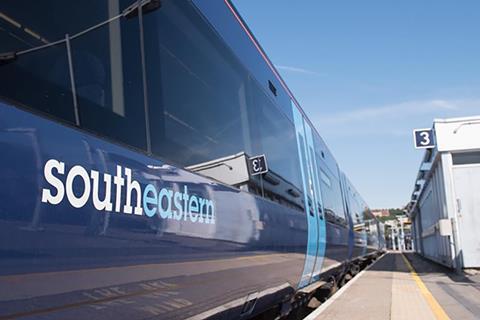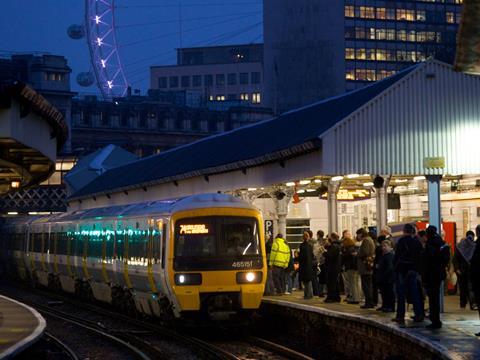
UK: The Department for Transport terminated the competition for the next South Eastern franchise on August 7, saying it had ‘significant concerns’ that continuing with the process ‘would lead to additional costs incurred to the taxpayer, with no certainty that this would deliver envisaged benefits for passengers in a timely fashion’.
DfT said it had ‘made every effort and considered all possible options to complete the competition, including a further rebid’, but concluded that cancellation would deliver the best outcome.
As a result, it has exercised an option to extend incumbent Govia’s current directly awarded contract until April 1 2020. This will ensure service continuity beyond the expected publication of a review of the structure of the rail industry which the government has commissioned from Keith Williams.
Next steps
DfT said the conclusions of the Williams Rail Review would be used to inform what happens next at South Eastern. It intends to implement lessons learned from the review, and to ‘develop a solution that delivers the capacity and performance benefits that passengers are expecting’.
Last month Williams ;said ‘franchising in its current form has had its day’, with the model adopted in the mid-1990s now ‘preventing innovation, long-term decision-making and stopping the railway working as a system’.
South Eastern franchise
The South Eastern franchise covering commuter services in London, Kent and East Sussex has been operated by the Govia joint venture of Go-Ahead (65%) and Keolis (35%) under the Southeastern brand since April 2006, originally under a competitively-tendered eight-year franchise and then under direct award contracts.

The shortlisted bidders for the next franchise were Govia, a joint venture of Abellio, East Japan Railway and Mitsui & Co, and a joint venture of Stagecoach and Alstom. Trenitalia had withdrawn to focus on bidding for the West Coast Partnership inter-city contract.
Following the discovery of non-compliance issues will all these bids, DfT completed a rebid process in August 2018. The Stagecoach joint venture was subsequently disqualified from South Eastern and two other competitions.
On April 10 this year, the then Secretary of State for Transport Chris Grayling announced that the start of the new franchise would be delayed ‘while we make a decision on the competition’, and Govia was directly awarded a contract running to at least November 10.
Industry response
Responding to the news that the competition had been cancelled, Go-Ahead Chief Executive David Brown said ‘a lot of hard work was put into a strong bid that would have built upon the achievements of Southeastern in recent years’. The company was ‘disappointed that our original bid is not being taken forward’, and would ‘engage with the DfT on the next steps’.
Abellio said it was ‘a really disappointing outcome for customers across the South Eastern network’. It had ‘spent many months working with customer groups, councils and business organisations and we believe our investment plan would have delivered significant improvements with more seats, more services, better trains and upgraded stations’.
Dyan Crowther, Chief Executive of HS1 Ltd which manages the high speed line used by some South Eastern services, said stopping the competition ‘does provide a real chance to rethink the specifications of the franchise and consider the benefits more high speed trains between London and Kent can bring’, with the ‘real prize’ being ‘the opportunity to deliver more regeneration, more housing and more jobs for London and the southeast’.
The opposition Labour party and trade unions reiterated their calls for nationalisation. General Secretary of the TSSA union Manuel Cortes said cancellation ‘amounts to a vote of no confidence in the whole franchising process and an admission by the government that competition on our railways simply does not work’, while his counterpart at the RMT union Mick Cash said ‘the chaos of short-term extensions to get the government off the hook is a measure of just how rotten their rail policies are’.



